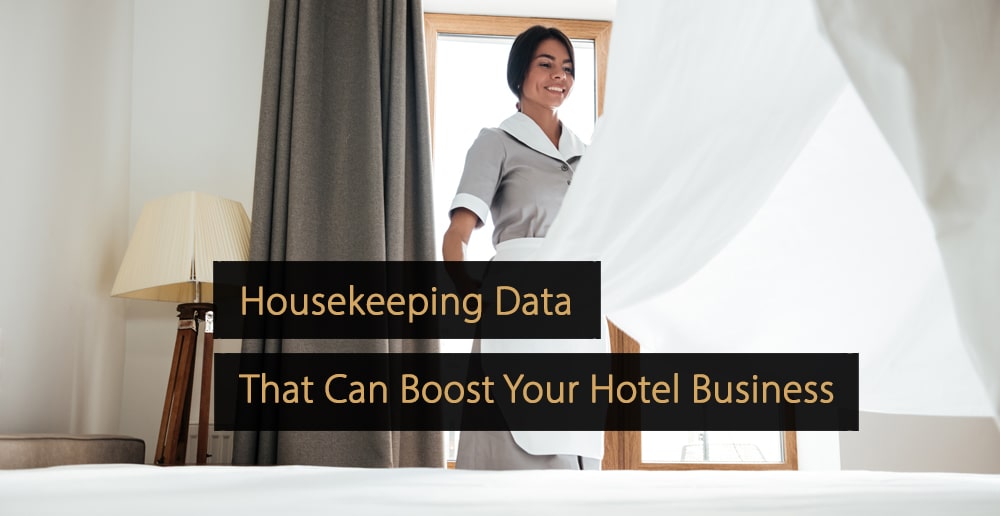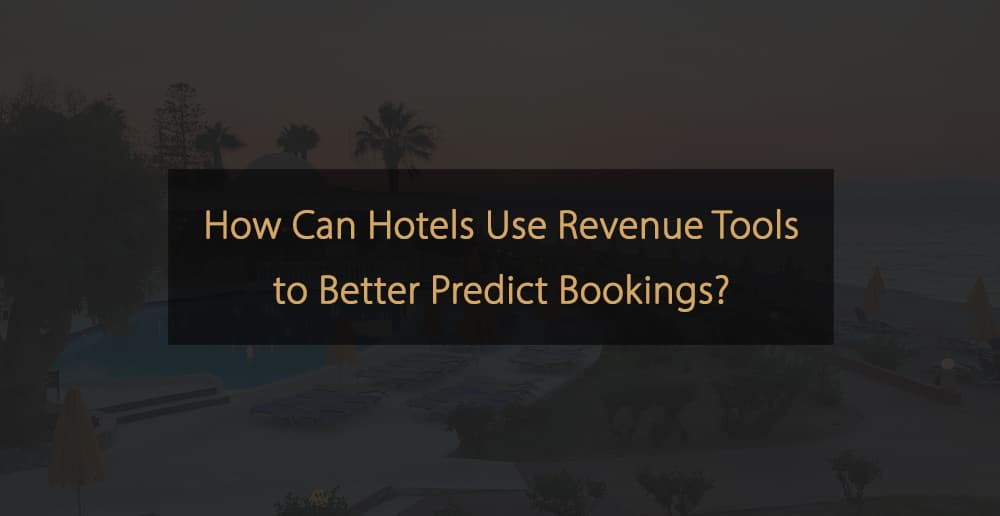Are you measuring housekeeping data? You should. Your guests or the activities drive the housekeeping services it takes to run the property. After all, a room must be cleaned because someone slept in it. So, to understand your property’s operations, how costs are created, and how to improve, you need to dive deeper into the catalysts triggering your services. And here’s where the housekeeping data comes in.
So, let’s talk about how housekeeping performance data can help you make informed, actionable decisions to boost your hotel business.
Housekeeping Data Shouldn’t be Frantically Collected
First things first: housekeeping data shouldn’t be frantically collected outside of context but measured, analyzed, and interpreted in a way that considers the whole picture. For example, don’t measure just the time it takes for a housekeeper to clean a room. Instead, get the full picture by collecting other room cleaning information and analyzing it to get a 360 view.
If you only measure how long it takes to complete one task, you measure a single housekeeper’s productivity based on time alone. That way, you are missing key information: what caused the housekeeper to complete a specific task in that time?
Collecting data should never interfere with your operation processes, either. Measuring the time it takes to clean a room shouldn’t force housekeepers to take steps that are not a logical part of the cleaning process (such as going somewhere to scan a QR code). Instead, try seamlessly implementing housekeeping software in your staff’s workflow so that data collection and work optimization co-occur.
Housekeeping Data That Helps Optimizing Your Hotel’s Performance
Let’s look at some exciting housekeeping data and discuss how you can use it to optimize a hotel’s performance.
Peak Times for Guest Requests
7 – 9 am and 3 – 5 pm. This is when most guests request extra services and report maintenance problems. Leverage this data as an opportunity to adopt a preventive and proactive approach rather than a reactive one when delivering services. Knowing when to expect a higher volume of guest requests lets you create better schedules and stay one step ahead of guests while optimizing hotel operations.
The Most Frequent Cleaning Mistakes
In a study we conducted following housekeeping performance in over 44,000 hotel rooms, apartments, and campsite units, the toilet seat was the most frequent housekeeping mistake. Upon room inspection, the toilet seat wasn’t properly cleaned 7,656 times. Knowing this lets you optimize your housekeeping training programs so that they provide more specific details on toilet cleaning.
Not only that, it opens space for communication with other hotel departments. If successful toilet cleaning is an issue for your housekeeping staff, maybe it’s time to change the design of toilets or even use automated toilet cleaning devices. Study your top cleaning mistakes, discuss them with your staff and other departments, and find a way to solve the problem best.
The Average Number of Rooms Assigned per Housekeeper
The same study found that, on average, housekeepers got assigned 21.9 rooms per day. That is way above the industry standard of 12–15 rooms daily. If cleanliness is the most important factor for hotel guests, why are we overwhelming our housekeeping staff with so much additional work? This inevitably leads to more mistakes, decreased motivation, and more guest complaints – 90% of travelers will avoid booking hotels described as ‘dirty’ in a review. Consider these numbers when creating housekeeping schedules, and do your best to distribute tasks fairly.
The Time it Takes to Clean a Room
We need to talk about the time one housekeeper takes to clean a room. Despite being the most frequent KPI of housekeeping performance, it is almost always analyzed incorrectly. Hotels often measure time without considering other factors: how many guests stayed in the room, and were there any children? Did the housekeeper need to take care of the additional amenities, such as an extra bed or an iron board? Many objectively impact a housekeeper’s performance, so consider all factors when comparing staff’s output.
Online Cleanliness Score Correlates with Workload and Room Inspection Results
To fully understand how your housekeeping performance impacts guest satisfaction, you must start comparing your internal operations’ data with external guest reviews. It is the most direct way of understanding how a lack of training or overworked staff can negatively impact your hotel’s business performance and vice versa.
Bottlenecks in Guest Service Communication
75% or more of guest requests and maintenance issues are reported and communicated by the Front Office and Housekeeping departments. While this isn’t surprising, managers should wonder why other departments aren’t more actively involved in the back-of-house communication and how these services can be optimized with technology. Is the Front Office or the Guest Service department picking up a phone to re-route a service request to another department? A digital guest-facing solution integrated into housekeeping software would completely automate that process.
Most Popular Extra Services
Look at the most popular requests for extra housekeeping services to understand how to optimize their delivery. If your guests often require an extra pillow, perhaps including them in a standard hotel bed setup would make sense. Or maybe only a certain type of guest requires extra pillows, and you can anticipate their needs. The optimization possibilities are endless once you start looking deeper.
Start Digging Deeper into Your Data to Unlock New Opportunities
Housekeeping performance data is a priceless tool for boosting hotel operations – costs, processes, quality, and guest satisfaction scores. The most important thing to note is that the main KPIs you are tracking hide multiple layers of additional information, each offering optimization opportunities.
Housekeeping management software such as Flexkeeping delivers 3.6x more valuable data and unlocks those additional layers of information and service optimization opportunities. Leverage technology to uncover all those layers. You are losing out if you’re among hotels that still don’t use housekeeping software.
More Tips to Grow Your Business
Revfine.com is the leading knowledge platform for the hospitality and travel industry. Professionals use our insights, strategies, and actionable tips to get inspired, optimize revenue, innovate processes, and improve customer experience.Explore expert advice on management, marketing, revenue management, operations, software, and technology in our dedicated Hotel, Hospitality, and Travel & Tourism categories.








Leave A Comment